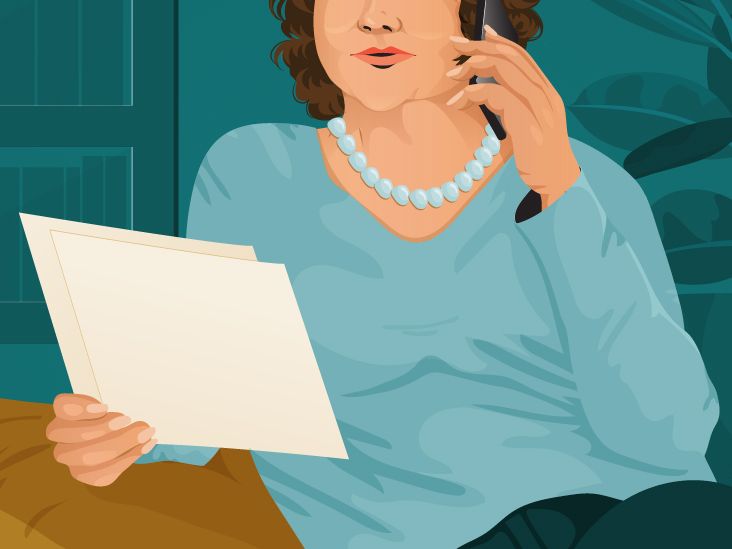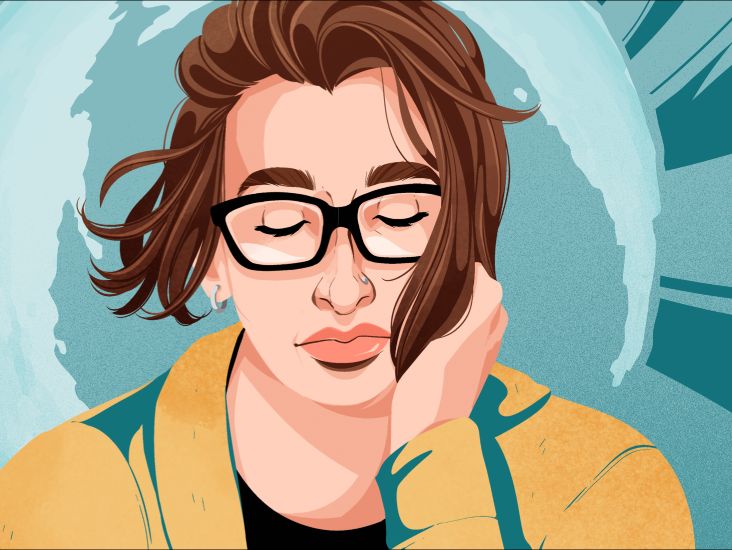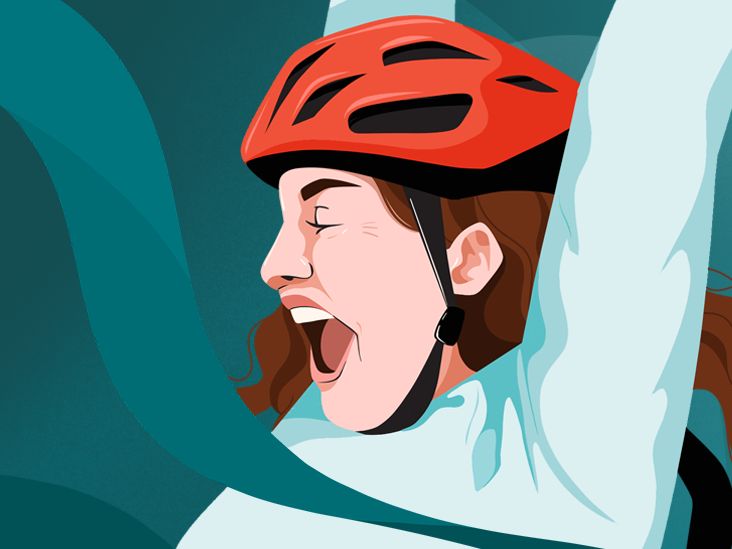
I have told this story so many times — in blog posts, at conferences, in private conversations — yet it never feels quite full enough. How can I explain 10 years of hiding my excruciating anxiety and the weird behaviors I performed to try to hide it?
How can I explain the thousands — if not millions — of hours I spent worrying? How can I say that I didn’t know any better? That I didn’t know things could be different?
It began as early as I could remember, maybe before I could even form memories. My memories of elementary school are overlaid with unrelenting fears of breaking the rules, a deep concern about being disliked, and a huge fear of getting imperfect scores on any and all assignments.
One day, I felt an imaginary string trailing behind me, and something in me knew that string could never cross over itself. If I turned to the right, I had to turn back to the left. When I sat down, I had to keep track of my orientation and where I would need to turn when I stood up.
I developed a fear of fires and of our house burning down. I hated fire drills because every one reminded me of the potential destruction. So, I startedtapping light switches to make sure they were all the way off and clearing anything away from outlets. Maybe these small tasks could reduce the chance of a fire, especially one that could be my fault. I couldn’t stand the thought of anything being my fault.
An important thing to mention is that even at this young age, I had an inkling these thoughts were irrational. How could tapping a light switch prevent a house fire? That couldn’t be true. But if there was a 1% possibility or even a 0.001% possibility, I wasn’t taking the chance.
As I aged, so did my fears. In middle school, I became preoccupied with the metallic smell my trumpet left on my hands. I would wash them as soon as I got home to make sure that I didn’t contaminate our house. For me, it was never about germs. The contamination I worried about was olfactory and the potential suffocation that smell could cause.
When we began doing research projects at school, I became paranoid that I would accidentally infringe on someone else’s copyright. I always wanted to do the right thing in school, and I aimed for nothing less than perfection. In high school, I set the goal of being valedictorian because I thought that if I was perfect, if I was the best, then maybe I would be OK.
With my first romantic relationship, I became terrified of getting pregnant. We weren’t even having sex. My brain found creative ways that it could still happen, even from sitting near someone.
My parents must have seen my anxiety, or at least some of it, beneath my attempts to hide it, but much of it was chalked up to personality. This was just who I was. I cared a lot (especially about school). I was hardworking. I was a good person — someone who tried their best not to hurt others.
But I kept so many of my compulsions hidden. I would stay up late knocking on wood to “undo bad thoughts” or counting in multiples of three until I got to a “safe number,” but I never told anyone about it. I was ashamed because some part of me knew these behaviors were not normal.
Only once did I ever hear the word “OCD” in conjunction with my anxiety. I was having repetitive thoughts about being attracted to another girl my age. I was confused because I didn’t think I liked girls that way, and the confusion made me panic. My mother tried to help by going through deep-breathing exercises with me, but they only helped in the short term.
She must have Googled my fears because she found out there is a type of OCD when someone fears having a sexual or romantic identity that does not match their actual identity. I know this because she asked me if I thought I had OCD. I insisted that I wasn’t afraid of germs or of getting sick, so I couldn’t possibly have OCD. And that was the end of the conversation.
When I went to college at 18, my anxiety imploded. Now, rather than having intrusive thoughts for several hours a day, I was having these thoughts all the time. The ritualized behaviors I was performing to try and rid myself of these thoughts were also nearing constant. And my roommate was getting annoyed.
My OCD symptoms were becoming harder to ignore and harder to hide.
So, just like my mother before me, I, too, turned to Google. I don’t remember exactly what I Googled, but it could have been:
- fear of dehydrating and dying
- fear of getting imperfect grades
- fear of accidentally causing a fire
- fear of getting pregnant
- fear of plagiarizing
- fear of touching household cleaners
- fear of my thoughts about people dying causing them to die
Or any number of other queries. There were so many possibilities.
What I found online were health articles about OCD written by therapists and other professionals. They seemed to confirm what I already suspected: All of my intrusive thoughts were common in people with OCD.
Then, I found something even more important, personal stories on blog posts. People were bravely sharing their obsessions and compulsions on the internet, and they sounded just like mine. They had the same thoughts and safety behaviors I had when, all this time, I thought I was alone.
I stayed up late Googling, watching vlogs and documentaries, and reading everything I could about OCD. These personal stories showed me that my fears had a name and, more importantly, that I was not alone.
I decided to make a list of all my obsessions and associated compulsions. It was four pages long, single-spaced.
My mother and I contacted the therapist I had seen in high school for anxiety. She had never asked about OCD or thoughts like this, so I had never brought them up. Why would I when I felt so much shame? Such a need for secrecy?
When we told this therapist I was starting to think I had OCD, she denied it immediately. She suggested I just wanted to have OCD. As if anyone would want these repetitive thoughts and the pain they cause!
So, I sought out an OCD specialist and was lucky to find one nearby. Within 5 minutes, the specialist was able to confirm what I already knew — that I definitely have OCD. It was a classic case, really. And with that, my life crossed from before to after.
I felt overwhelmed that I now had a diagnosis. Mostly, though, I felt hope. If all these thoughts and behaviors had a name, then they also had a treatment and a community.
I’m lucky in that I began exposure and response prevention therapy (ERP), the gold-standard treatment for OCD, shortly after being diagnosed. Many people like me wait years to get a diagnosis and even longer to find the correct treatment.
Certain treatment options can actually make OCD worse for some people because they end up providing too much reassurance or inadvertently encouraging the compulsions. Exposure therapy is about gradually and consensually facing your fears while reducing the compulsion behaviors. It’s extremely hard work, but it’s effective.
I built charts of all my fears and their associated compulsions. I wrote hierarchies of how I would face those fears. And I cried through my anxiety while rating it on a scale from 0 to 10. Although I found myself thinking the worst might happen many, many times, I wouldn’t be the functioning, happy adult that I am today without ERP.
I also know that getting through that treatment and making so much progress wouldn’t have been possible without a community of people who understood what I was going through.
Knowing that there were others out there like me was my biggest motivator in fighting OCD. I met them through the Active Minds chapter at my university, at International OCD Foundation walks and conferences, and, eventually, at the nonprofit I started for people with OCD, Not Alone Notes.
About a month after my OCD diagnosis, I started my own blog. I began writing under a pseudonym but eventually used my real name and photos. It was a way to end my silence and, honestly, to overshare all that I had been hiding for the past decade. But it was also a way for me to give back.
I knew from Googling some of my OCD symptoms that there were still some awareness gaps, and I wanted to help fill those in. For example, the compulsion of rereading for fear of not understanding. I figured when others went Googling their thoughts at 2 a.m., maybe they could find my blog, and maybe that would help them find a diagnosis and treatment.
My therapists helped me cut my constant thoughts and compulsions down to just a few minutes a day. But it’s the OCD community — and the friends I’ve made there — that inspires me to continue the fight.
Morgan Rondinelli is a mental health blogger, OCD advocate, and co-founder of the nonprofit Not Alone Notes. She is currently working toward an MFA in creative writing. Morgan also enjoys dance and theater. You can find Morgan on her blog or on Instagram.



